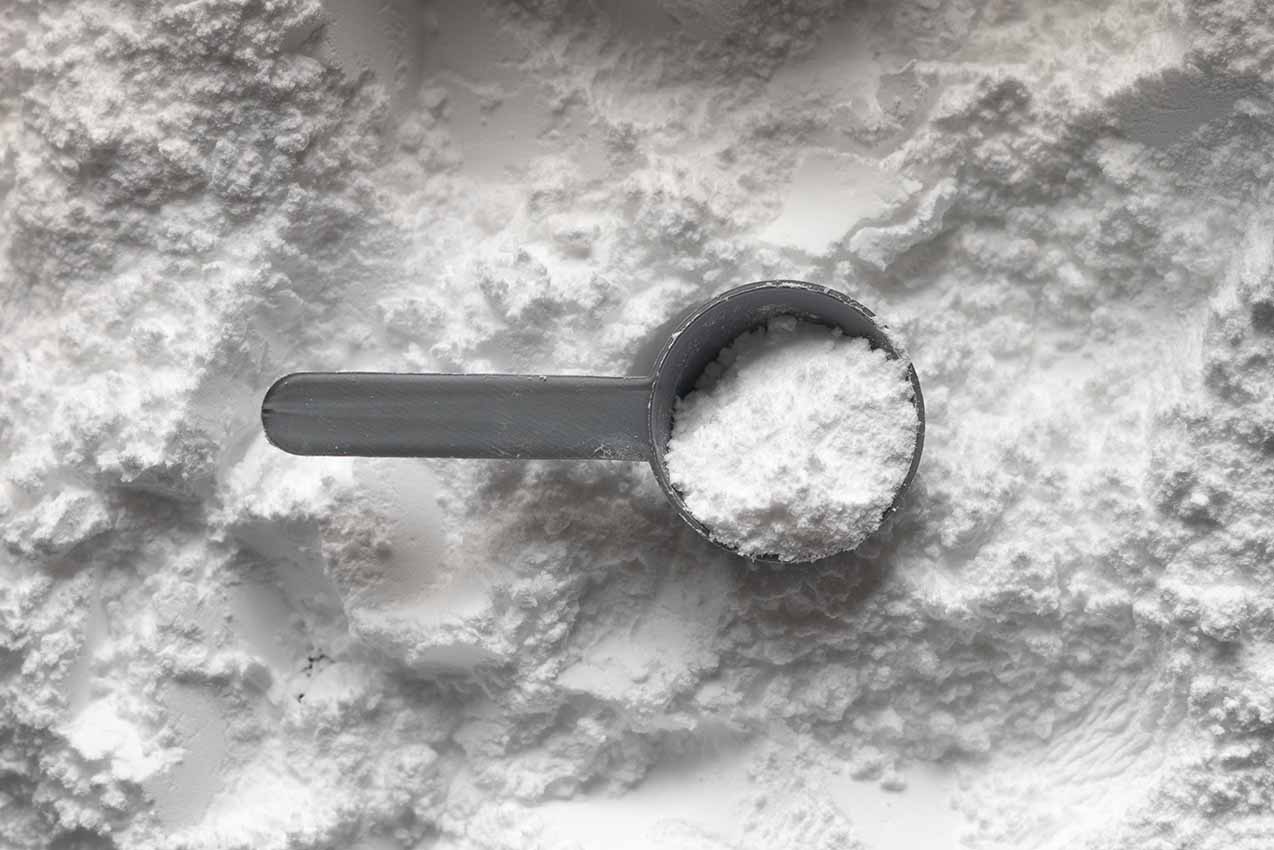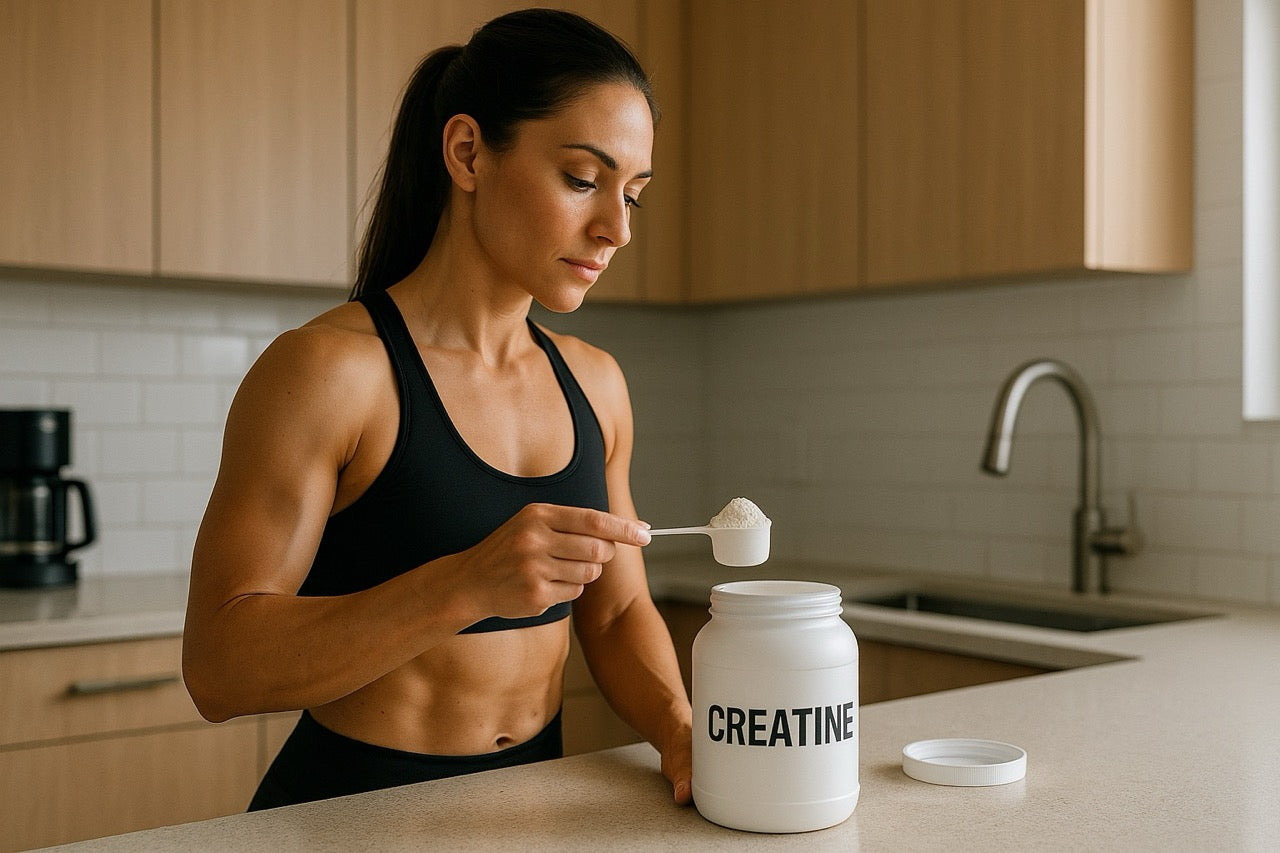Ultimate Guide To Creatine: Everything You Need To Know

Creatine is a natural compound found in the body and also in certain foods such as meat and fish. It’s a popular supplement among athletes and fitness enthusiasts due to its potential to improve athletic performance, increase strength, and boost muscle mass. In this comprehensive guide, we will explore the various benefits of creatine, how it works, the best ways to use it, and the potential side effects to keep in mind.
What is Creatine and How Does it Work?
Creatine is an amino acid stored in the muscle that helps rebuild ATP. It acts as an energy reserve that your body can use when you engage in high-intensity exercises, such as weightlifting or sprinting. Cells in your body rely on ATP for energy, and when you exercise, you use up more energy than your body can produce. That's where creatine steps in, replenishing the energy in your muscle tissue by quickly converting to ATP (literally in seconds). This extra energy can help you perform more reps, lift heavier weights, and recover more quickly between sets.
The body can produce its own creatine (creatine phosphate), but you can also get it from food sources such as red meat and fish. Some people, particularly bodybuilders, gym rats, and those who engage in high-intensity training, often benefit from taking creatine supplements to ensure they have enough stored energy in their muscles.
What are the Benefits of Creatine?
There are numerous benefits to taking a creatine supplement, including:
- Increased strength and power: Creatine has been shown to increase strength and power output, making it easier to lift heavier weights and perform more reps.
- Improved athletic performance: Studies have shown that creatine supplementation can improve athletic performance, particularly in high-intensity activities such as sprinting and weightlifting.
- Increased muscle growth: Studies have shown that creatine increases IGF-1, a hormone needed for muscle growth.
- Muscle hydration: Creatine retains water in your muscles, helping them be more hydrated and improve their efficiency.
- Enhanced recovery: Creatine has been shown to help reduce muscle damage and improve recovery after intense exercise.
- Alleviate muscle soreness: Creatine has been shown to reduce markers of muscular damage and reduce the severity of muscle soreness following strenuous exercise.
- Improved brain function: One study showed that creatine may improve reasoning and short-term memory.
- Brain health: Some evidence suggests that creatine supplementation might help protect your brain against age-related damage, reduce brain damage, and improve recovery after traumatic brain injury.
Who Can Benefit from Creatine Supplementation?
Creatine supplementation can be beneficial for anyone looking to improve their athletic performance or increase their muscle mass. However, it is especially beneficial for high-intensity athletes such as sprinters, weightlifters, and bodybuilders.
What is The Best Form of Creatine?
Creatine monohydrate is considered the gold standard, as it’s the most extensively studied and clinically effective form of creatine. Creatine monohydrate is also the most popular and affordable. There are several other forms of creatine, including creatine ethyl ester, creatine HCL, and creatine hydrochloride, but there is currently no consistent evidence that supports other forms do a better job than monohydrate.
How Much Creatine Should I Take?
The recommended dosage of creatine is between 3-5 grams per day to hit fitness goals. It is important to drink plenty of water when taking creatine to help the body absorb the supplement. After about three to four weeks of taking creatine, your muscle creatine levels will become fully saturated.
If you’re taking creatine for the first time, one of the most effective ways to increase creatine levels in your muscles is through creatine loading. Creatine loading is where take more creatine to start, and then taper off to a maintenance dose once your muscles are saturated. To creatine load, consume about 20 grams of creatine per day for 5 days, and then go to the daily recommended dose of 3 to 5 grams per day.
Are There Different Ways To Take Creatine?
Yes! There are multiple ways to take creatine, but the most popular is creatine monohydrate powder. You can mix your favorite creatine powder with water or fruit juice and drink it once or twice a day. You can also take creatine in pill form, creatine chews, or creatine gummies. Our favorite is the creatine gummy bear, balanced with great taste and the daily recommended dose of creatine monohydrate.
Is Creatine Safe?
Extensive research shows that creatine is considered safe and effective for most people. According to the International Society of Sports Nutrition, “there is no scientific evidence that the short- or long-term use of creatine monohydrate has any detrimental effects on otherwise healthy individuals”. Despite being one of the most extensively studied nutritional supplements, there are some potential side effects to keep in mind:
- Stomach discomfort
- Weight gain
- Dehydration
Conclusion
In conclusion, creatine is a natural compound that can help improve athletic performance, increase strength, and boost muscle mass. While there are some potential side effects to be aware of, creatine is considered safe for healthy individuals. To get the most out of creatine supplementation, be sure to use the correct form and take it as directed. If you are looking to improve your athletic performance or increase your muscle mass, creatine supplementation may be a safe and effective option.







